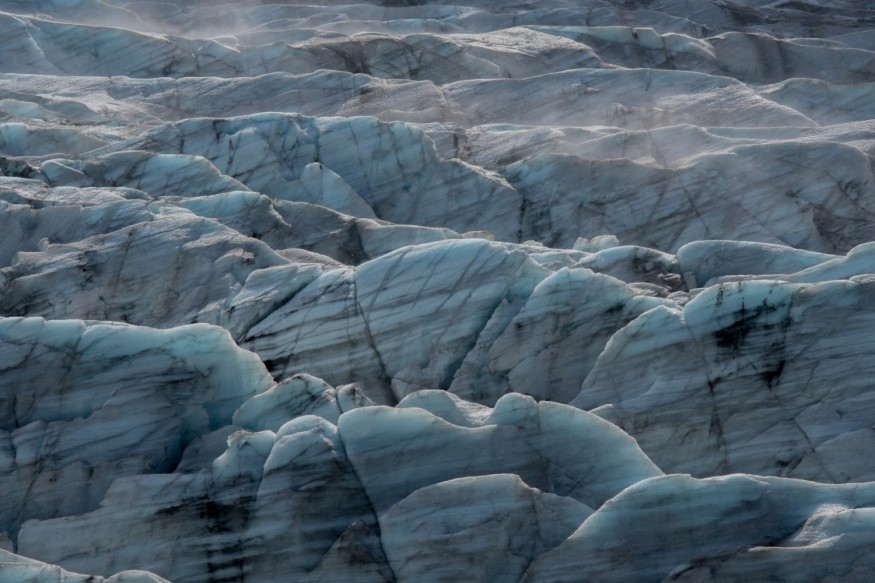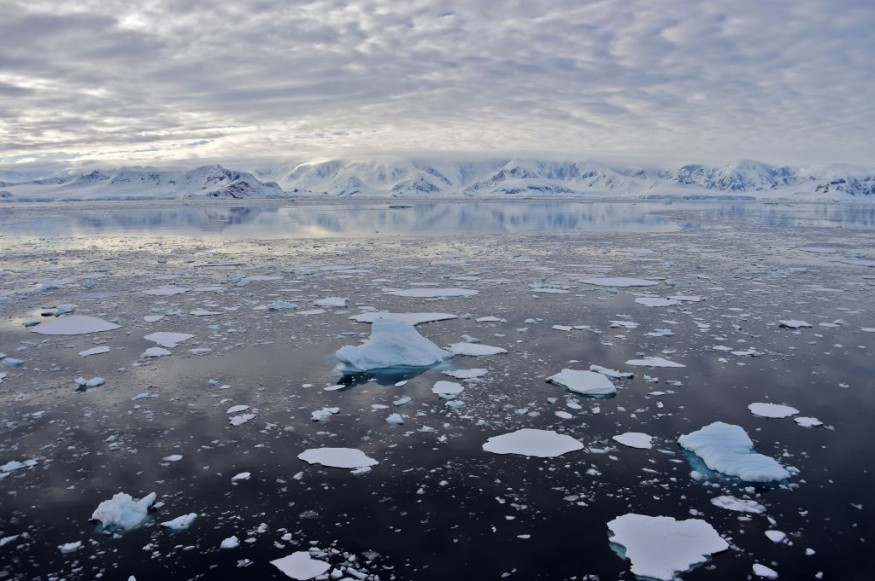According to recent evidence, the next pandemic may result from melting glaciers. An analysis of an Arctic Lake showed that frozen viruses and bacteria may thaw out and infect animals.

Next Pandemic
According to recent information, the next pandemic may be caused by melting ice rather than bats or birds.
A virus infecting a new host for the first time may be more likely to occur close to melting glaciers, according to genetic analyses of soil and lake sediments from Lake Hazen, the biggest high Arctic freshwater lake in the world.
According to the findings, it is increasingly probable that viruses and bacteria dormant in glaciers and permafrost would reawaken and infect nearby species when global temperatures increase due to climate change, especially if their ranges move closer to the poles.
Virus Frozen in Ice

For instance, a heatwave in 2016 that melted permafrost and exposed an infected reindeer corpse was blamed for an anthrax epidemic in northern Siberia that resulted in the death of a child and the infection of at least seven other persons.
The previous epidemic in the area occurred in 1941.
Stéphane Aris-Brosou and her colleagues at the University of Ottawa in Canada gathered soil and sediment samples from Lake Hazen, close to where little, medium, and large quantities of meltwater from nearby glaciers poured in, to better understand the risk presented by frozen viruses.
After that, scientists used an algorithm to determine the likelihood that these viruses might infect unrelated groups of creatures.
Finally, they analyzed the RNA and DNA in these samples to find signatures that closely matched those of known viruses and probable animal, plant, or fungal hosts.
The study, which was reported in the Proceedings of the Royal Society B, revealed that the chance of viruses spreading to new hosts was higher in areas adjacent to where significant volumes of glacier meltwater flowed in, a circumstance that grows more probable as the climate warms.
The researchers did not determine if the viruses were able to start an infection, nor did they quantify how many of the viruses they discovered were previously unknown-this is something they want to address in the coming months.
Contending the Finding
Another recent study, however, contends that unidentified viruses may and do linger in glacier ice.
For example, scientists at Ohio State University in the US reported finding genetic material from 33 viruses, 28 of which were unique, in ice samples collected from the Tibetan plateau in China last year.
The viruses were believed to be about 15,000 years old based on their location.
Looking at the Future
A huge virus isolated from Siberian permafrost was brought back in 2014 by researchers at France's National Centre for Scientific Research in Aix-Marseille, making it contagious for the first time in 30,000 years.
According to the study's author Jean-Michel Claverie, revealing such ice layers might be "a formula for disaster."
However, Aris-group Brosou warned that identifying a high risk of spillover was not the same as identifying real spillovers or pandemics.
The chance of spectacular occurrences "probably stays low as long as viruses and their "bridge vectors' are not simultaneously prevalent in the environment," scientists concluded.
On the other hand, it is anticipated that climate change may affect the distribution of current species, possibly bringing new hosts into touch with extinct viruses or bacteria.
The only conclusion that can be drawn, according to Aris-Brosou, is that as temperatures rise, the likelihood of spillover in this ecosystem increases.
Will pandemics result from this? We are entirely unsure.
Related Article : Scientists Double Effort to Find Possible Next Pandemic, Caused by Other Zoonotic Diseases
For more health and medicine related news, don't forget to follow Nature World News!
© 2025 NatureWorldNews.com All rights reserved. Do not reproduce without permission.





